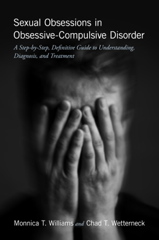Expert Help for OCD
Take Your Life Back from OCD
Offering expert treatment for all types of OCD, including unwanted obsessional thoughts. Our OCD treatment program is typically 10 weeks. We offer twice-weekly sessions, groups, and intensive programs. Intensive program can be in person or online. Low cost options available. Contact us...
Behavioral Wellness Clinic
392 Merrow Rd, Suite E,
Tolland, CT 06084
Office: (860) 830-7838
OCDTYPES
Obsessive-compulsive disorder comes in many forms
Covert Symptoms in OCD
Mental Compulsions
Although obsessions without overt rituals are now considered relatively common among people with OCD, this OCD symptoms has generally been understudied and until recently has been considered resistant treatment. Beliefs regarding the importance of thoughts and the need to control them are common in people with this type of OCD. The meanings associated with unwanted thoughts may be related to views of self, for example, the ideaa that "Having a bad thought means I am a bad person."
People with mental compulsions are usually coping with thoughts are that are unacceptable or taboo in nature (sexual, harming, religious thoughts), or worries about illness and health. Rather than perform an overt ritual, such people will engage in these covert rituals and mental neutralizing. This might include repeating silent prayers, replacing "bad" thoughts with "good" thoughts, or erasing unpleasant mental images. They might also engage in excessive silent prayer or confession, perform some form of mental checking (e.g., reviewing one's behaviors), or engage in excessive self-reassurance (e.g., "I have never done that bad thing before so I won't do it now.") These mental compulsions result in the same temporary relief from anxiety, and are thus are thus equivalent to more overt rituals.

People with OCD tend to be introspective and may spend a great deal of time and effort ruminating about the origins of their disorder. In fact, this sort of rumination can also be a mental compulsion.
Common mental rituals
- Special words, images, numbers, repeated mentally to neutralize anxiety
- Special prayers (short or long) repeated in a set manner
- Mental counting
- Mental list-making
- Mental reviewing (e.g. reviewing conversations or actions)
- Mental erasing of unwanted mental images
- Mental un-doing
- Self-reassurance
Pure-O
Sometimes people who have primarily mental compulsions are called "pure-o" or "pure OCD". This actually means "pure obsessional" — someone with only obsessions and no compulsions. But this person does have compulsions, they just go unseen.
New Book for Treating OCD
 Treating sexual obsessions in OCD differs from treating of other forms of OCD due to greater feelings of shame surrounding symptoms, widespread misdiagnosis from professionals, and the covert nature of ritualizing behaviors. Written by a team of international experts on OCD, this book provides clinicians with the tools needed to successfully help clients suffering from unwanted, intrusive thoughts of a sexual nature. Learn more...
Treating sexual obsessions in OCD differs from treating of other forms of OCD due to greater feelings of shame surrounding symptoms, widespread misdiagnosis from professionals, and the covert nature of ritualizing behaviors. Written by a team of international experts on OCD, this book provides clinicians with the tools needed to successfully help clients suffering from unwanted, intrusive thoughts of a sexual nature. Learn more...

